Department Profile: Department of Puerto Rican and Latino Studies Celebrates 50 Years
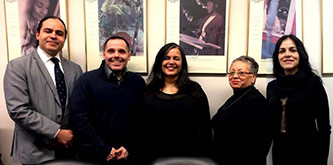
Current members of the Puerto Rican and Latino Studies Department. From left, Professors Reynaldo Ortíz-Minaya, Alan A. Aja, Maria E. Perez y Gonzalez, office administrator, Matilda Nistal and Professor Carla Santamaria
Fiftieth Anniversary
Fifty years ago, at a time of great social and political upheaval in America, community organizers, student activists, and enlightened educators came together to demand that the university include the voices of historically marginalized people and pushed for departments to explore and present perspectives that had been excluded from the academy. The Puerto Rican Alliance (PRA) student organization, which included Puerto Rican, Dominican, Panamanian, and African American students, was founded in 1968 and first pushed for the Puerto Rican Studies Institute, launched in 1969. After two years of intense and strategic organizing by black and Puerto Rican students and their community partners, the Department of Puerto Rican Studies was established in 1970 (and the Afro-American Studies Department the same year). According to one of the department’s founding members, Professor Antonio (Tony) Nadal, "During the early years of their existence, these programs pioneered in the creation of a new inter- and multidisciplinary field of study focused on representing the interests of a community of students, faculty, and alumni. In the process, these departments also struggled for autonomy, internal consolidation, and the elaboration of a philosophy and direction that grew out of this praxis."
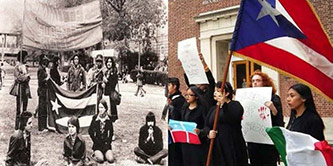
Students demonstrating in front of Boylan Hall to support Puerto Rican and Latino Studies in 1970 and in 2016.
In 1998, the department changed its name to Puerto Rican and Latino Studies to reflect the changing demographics in New York City, but the decision to keep Puerto Rican in its name was a conscious decision to honor the founders who sacrificed their time, energy, and studies going as far as being arrested during the struggle for academic representation and departmental autonomy. For example, the BC 44, which included three faculty members and 41 students, were jailed overnight for occupying the Registrar's Office in a bid to force the hiring of its elected chair, Maria E. Sanchez. The Brooklyn College department was the third Department of Puerto Rican Studies founded in CUNY and is now the only remaining stand-alone department. A direct result of social change engendered by the civil rights movement, anti-war protests and student activism, this academic department remains committed to excellence in teaching, scholarship, and progress focusing on Latin@s in the United States. Thus, in 2020–21, this coming academic year, we celebrate the 50th anniversary of the Department of Puerto Rican and Latino Studies, an enormous milestone in the history of the City University of New York.
The department's 50th anniversary will be celebrated with events all through the 2020–21 academic year. The campus community is invited to honor this landmark year, which depending on New York City's reopening plans, will include the following scheduled events:
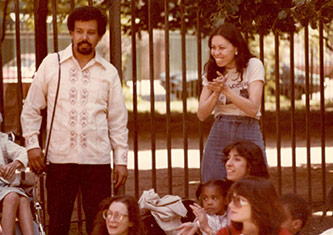
Professor Tony Nadal at the Brooklyn College child care center in the late 1970s

Professors Tony Nadal and Milga Morales Nadal ’70
- The 15th Annual Encuentro series, The Possible Dream: Latinx Arts, Communities, and Leadership, will be held as it has been since 2006 in November, featuring academic panels, alumni-career networking opportunities, music, dance, slam poetry, and other activities in celebration of Latinx heritage. As always, Encuentro will be open to the entire Brooklyn College community, alumni, and the public.
- The Alliance for Puerto Rican Education and Empowerment (APREE) will screen a documentary depicting how the Puerto Rican Alliance, the oldest continuous Latinx student organization in CUNY, fought to establish Puerto Rican Studies at Brooklyn College. The film screening will be followed by a Q&A with founding members, November 2020.
- A special topics course, "West Side Story: The Brooklyn College Connection," spring 2021
- A 50th Anniversary Gala Celebration, April 2021
- A student forum, Empowering Our Future: Careers and Graduate School, May 2021
One other memorable milestone of the PRLS 50th year celebration is that this is also the 50th anniversary of two of the founding members of the department who met on the campus in the late 1960s and went on to distinguished careers at the college. Married in 1970, the same year the department was founded, Tony Nadal and Milga Morales Nadal '70, have been core contributors to the Brooklyn College community since those student days. After years holding various administrative positions in the School of Education, Milga Morales served first as dean of student life, then vice president of student affairs, overseeing numerous beautiful and dignified Commencement ceremonies among her many other duties and responsibilities in that office. Tony Nadal has served as acting chair of the department and has brought his signature wisdom, optimism, and generous spirit to college and university committees too numerous to count.
Current Faculty
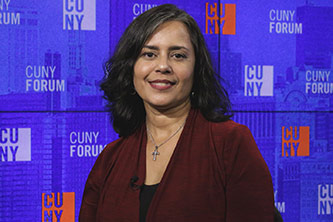
Current Acting Chair Professor María Pérez y González
María E. Pérez y González received her Ph.D. from Fordham University in Sociology, with concentrations in Hispanics and mental health, ethnic minority integration processes, and demography. She specializes in Latinas in ministry and is currently working on a manuscript on the topic of Latinas and Pentecostalism. She published Puerto Ricans in the United States with Greenwood Press in 2000. Her research interests include Puerto Ricans, Dominicans, Latin@s, Pentecostalism, and criminal justice. She served as department chair from 2004 to 2019 and chair of Faculty Council from 2009 to 2012. Her stellar work for the college earned her the Eric M. Steinberg Award for College Citizenship in 2016.
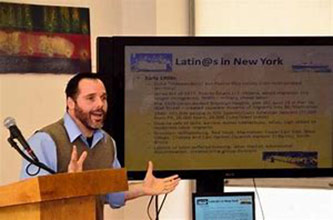
Current chair, Professor Alan A. Aja
Alan A. Aja holds a Ph.D. in public & urban policy from the New School, a master of arts in sustainable international development from Brandeis University and a bachelor of arts in communication and sociology from the University of Kentucky. Prior to academia, Aja worked as a labor organizer in Texas and conducted human rights and environmental education research in Latin America. His research and publications focus on racial disparities, ethnic enclaves, intra-group colorism, immigrant incorporation, inter-group relations, Latino political power, and race-based affirmative action. His book, Miami's Forgotten Cubans: Race, Racialization and the Local Afro-Cuban Experience, was published by Palgrave-McMillan in 2016.
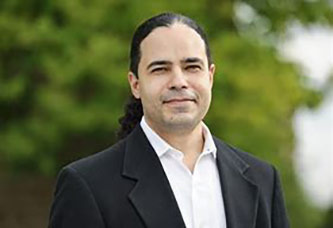
Professor Reynaldo Ortíz-Minaya
Reynaldo Ortíz-Minaya is a U.S. Fulbright Scholar (2019–20) and specialist on mass incarceration and criminal justice who serves as an international consultant to various global organizations focusing on penal reform and rule of law. His research on the growth of prison populations examines the historical relationship between penal confinement and wealth accumulation in the regions of the Caribbean, Southeast Asia, and Central Eastern Europe. His first forthcoming book manuscript is titled From Plantation to Prison: Visual Economies of Slave Resistance, Criminal Justice, and Penal Exile in the Spanish Caribbean, 1820–1886.
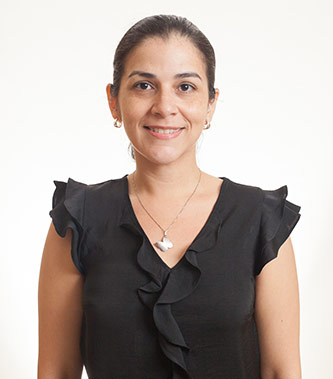
Professor Carla Santamaria
Assistant Professor Carla Santamaria, the newest member of the department, received her Ph.D. from SUNY-Albany in Spanish and her M.A. from SUNY-Stony Brook in Hispanic language and literatures. Her areas of research include urban studies, decolonial theory, cultural studies, and cultural wealth infused bilingual education. She related that she has a passion for studying popular culture and explains that popular culture is a “mirror” into analyzing the history and culture of the people of the Caribbean region, especially, but not exclusively, Puerto Rico, Cuba, and the Dominican Republic. Her dissertation, Boricuas isleños y nuyorriqueños: La construcción de identidades puertorriqueñas a través de la poesía de calle, explored cultural manifestations such as Nuyorican poetry and reggaeton.
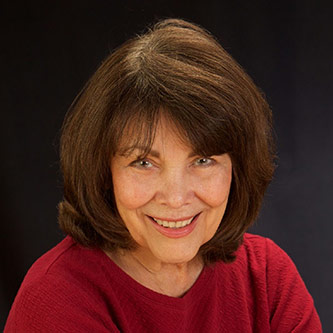
Virginia Sanchez Korrol ‘60
Virginia Sánchez Korrol '60, professor emerita, prominent historian, and former chair of the department, is a nationally known expert in Latina history. She is the author, contributor, or co-editor of more than 30 books, including the three-volume Latinas in the United States: A Historical Encyclopedia (Indiana University Press, 2006) and Latina Legacies: Identity, Biography, and Community (Oxford University Press, 2005). She was honored by the National Puerto Rican Day Parade with a Lifetime Achievement Award.
In sum, the Department of Puerto Rican Studies is a student-friendly, open-door policy department, grounded in scholarship and activism, with high academic expectations for all students from diverse racial and ethnic backgrounds. Its mission statement declares, "The department promotes transformative education encompassing active citizenship and leadership, providing students with the interdisciplinary knowledge and critical skills to live in a rapidly changing and globally interdependent 21st century."
To learn more about PRLS, career paths, its alumni, and faculty, visit the website.






